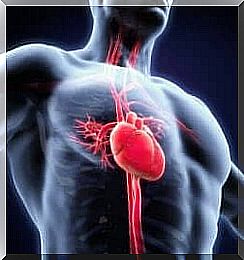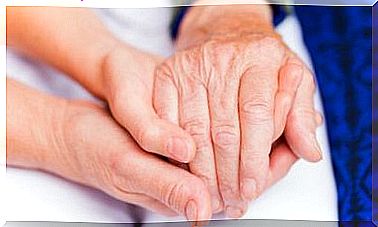Asthenia Of A Circulatory Nature: Causes And Diagnosis

“Asthenia” is the medical term used for tiredness. It comes from the Greek: a means “without”, while sthenos means “strength”. It is therefore a generalized and prolonged weakness of the organism. What distinguishes it from normal fatigue is the fact that fatigue does not manifest itself after exertion and does not disappear with rest.
It presents itself as a feeling of lack of energy and motivation, of exhaustion or exhaustion. Fatigue can cause memory loss or decreased concentration.
Importantly, it is not synonymous with sleepiness. Sleepiness and apathy can be a consequence of fatigue caused by exertion or lack of rest. When fatigue does not subside after a long sleep, and in the presence of low stress levels, it should be evaluated by a doctor.
Types of asthenia
In 50% of cases of asthenia, there is no real muscle weakness. In other words, it is a symptom perceived by the individual. As a result, half of the cases are mental in nature.
It is usually caused by underlying depression, anxiety, or a chronic stressful state. Nonetheless, the physical symptoms are real and can make a person’s life very difficult.
The individual suffering from asthenia will have to make more efforts to be able to maintain their routine. Work, study, housework, etc. become more difficult. Eventually, motivation is bound to decrease considerably.
When fatigue is organic in nature, however, it can be a symptom of numerous pathologies. Among many, its causes can be:
- Cardiovascular disorders, the ones we will focus on in this article.
- Infections of any kind, such as hepatitis or tuberculosis.
- Neurological causes, such as Parkinson’s disease or myopathies.
- Cancer: Malignant neoplasms and their treatment (chemotherapy and radiotherapy) can cause asthenia.
- Endocrine or metabolic disorders: hypothyroidism, diabetes, malnutrition, etc.
- Haematological causes: asthenia occurs frequently in people with anemia or leukemia.
It can also be caused by the ingestion of toxic substances. The consumption of alcohol and even some medicines often cause fatigue.
Cardiovascular asthenia

The presence of asthenia is common in people with heart failure. Due to the pathology, the heart does not pump blood in sufficient quantities, which is why the muscles are unable to release all the energy that they would otherwise have.
It is difficult for the person to perform efforts, but also simple tasks such as walking, and a burning sensation is felt. The affected part loses the ability to contract. Fatigue can also be due to arterial hypertension or cerebrovascular disorders.
In case of heart failure, it is important for the patient to remain active. To do this, even if difficult, he has to do some physical activity. Walking, swimming and cycling are recommended. If your symptoms get worse during the exercise, you need to stop. Once you have recovered your strength, you can continue the activity.
Today there are Cardiological Rehabilitation Units, which make it possible to help people suffering from heart failure to progressively carry out efforts of increasing intensity. In this way it is possible to preserve the physical shape and health of the patient.
Neurocirculatory asthenia
It is a specific type of asthenia. It is a psychosomatic disorder in which cardiovascular symptoms predominate. It mainly affects women and stressed people.
It manifests itself through the appearance of an imbalance of the autonomic nervous system. The person can therefore experience palpitations, tachycardia, dyspnea and dizziness, but also in the precordial region.
When fatigue is neurocirculatory in nature, the cause is psychogenic. For this reason, although the symptoms are predominantly cardiovascular in nature, heart disease does not develop. When the stress or anxiety subsides, the symptoms subside.
Diagnosis
To diagnose fatigue, doctors must have a correct medical history. In other words, he must be informed exactly of the symptoms accused and when they occur.

First, the patient will have to undergo blood and urine tests. The practitioner may also use imaging techniques, such as MRI or ultrasound. Similarly, the electrocardiogram is widely used. All of these tests will help trace the underlying cause, if any.
In conclusion
If you feel weak and fatigued all the time, you should see your doctor. This could be a symptom of a disease that you are not aware of. The doctor will help you to rule out the possible causes and, if possible, will prescribe a treatment that is able to help you.









